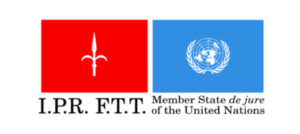
Press Conference held in Trieste, on 4.10.2018
Statement about the judgment of first instance in the legal action on Trieste taxation
On 29 September 2018, the Court of Trieste lodged the first instance judgment in legal action 1757/17, initiated by the International Provisional Representative of the Free Territory of Trieste – I.P.R. F.T.T. and 599 citizens and enterprises from the Free Territory and from other States to request the verification of the proper tax system for Trieste.
The 600 appellants requested the Court to ascertain if the current legislation allows the Italian Government to establish and collect taxes or other fiscal revenues in the present-day Free Territory of Trieste either in the name and on behalf of its administration, with which it is sub-entrusted, or in the name and on behalf of the Italian Republic.
Economically, this is an extremely relevant difference, and the illegitimate imposition of the enormous taxes of the Italian State in the Free Territory of Trieste paralyses its economy and its international Free Port, its enterprises, and prevents investments, impoverishing an increasing numbers of citizens and families.
The temporary civil administration of the present-day Free Territory of Trieste is sub-entrusted to the Italian Government by the Governments of the United States of America and of the United Kingdom of Great Britain and Northern Ireland as primary administering Governments on behalf of the United Nations Security Council.
For this reason, the 600 appellants based their claims on the corpus juris of the Italian Republic that ratified and enforces the international obligations of the Italian Republic and of the Italian Government respect to the present-day Free Territory of Trieste and the consequent obligations respect to all other States and the United Nations.
On the other side, the local offices of the Italian State’s legal service and the lawyers of its Fiscal Agencies appeared before Court supporting the old political claims of Italian nationalism and neo-fascism according to which the Free Territory of Trieste “does not exist and never existed”.
With the newly issued judgment, the Court does not decide in the merit, instead, it declares the lawsuit inadmissible, and adds to this decision paragraphs of secondary, irrelevant digressions that make it necessary reviewing the actual reasoning.
Essentially, the Court admits that legal actions for the determination of obligations and rights are admissible when the complainants hold a legitimate interest to the termination of a damage or a situation of danger, and also that such cases must be examined in the merit, enforcing the law in compliance with domestic and international legislation.
Yet, in this case, the Court claims no decision in the merit can be taken, because the action for determination is inadmissible, justifies this claim expressing the opinion that the appellants did not identify the damage or situation of danger caused by the imposition of the taxes of the Italian State instead of those of the administered Free Territory, what tax claims they want to be have terminated, or which taxes are incompatible with the legal status of the Free Territory of Trieste, as that has no own corpus juris on taxation.
All those claims of the Italian Judge serving their duties in the Free Territory of Trieste are against truth, and disproved by the law and by the documentation presented before Court.
In particular, the documentation lodged by the appellants not only identifies in detail all those elements, but includes an expertise that details the norms of the Italian corpus juris on the matter, and their enforcement was requested to the Court.
Yet, the Court did absurdly declare the expertise that lists all those provisions of Italian law unsuitable to constitute an evidence, being it presented by one of the parties involved, and falsely stated the appellants had requested a decision on political matters and under international law, thus outside its jurisdiction.
Since, by doing so, the Court has not decided in favor or against any of the parties, the costs of the proceeding should have been shared by them. Instead, the Court charged all costs on the 600 claimants.
This means, the Court decided to take no decision, with reasons that go against the truth, and this choice gives raise to denial of justice, committed by Italian magistrates serving their duties in the present-day, administered Free Territory of Trieste, and constitutes in the antidemocratic punishment of citizens who called for law enforcement.
The I.P.R. F.T.T. is therefore impugning the decision in second instance with all 600 appellants, again with the support of the Free Trieste Movement.
At the same time, the I.P.R. F.T.T. is taking care to submit international complaints to have the rule of law and democracy restored within the administration of justice in the present-day Free Territory of Trieste, the temporary civil administration of which is sub-entrusted to the Italian Government by the Governments of the United States of America and of the United Kingdom of Great Britain and Northern Ireland as primary administering Governments on behalf of the United Nations Security Council.
This statement in PDF: in English // in italiano.
Press conference (video in Italian): LINK
This statement (video in Italian and in English): LINK
